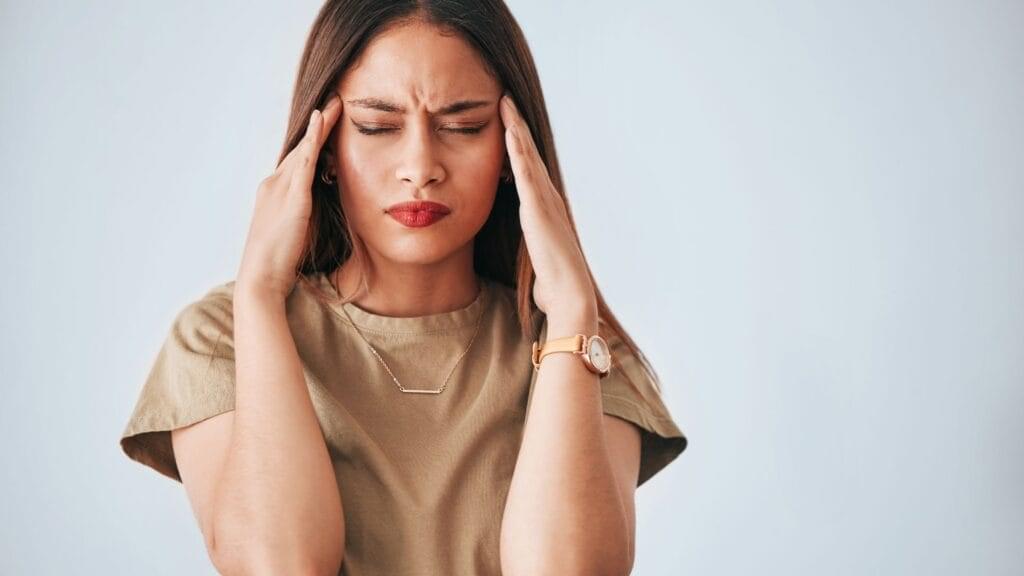This blog will provide information about anxiety. It will shine a light on main causes of Anxiety, Symptoms of Anxiety and Associated Disorders of Anxiety. This will also provide you ways to manage and treat anxiety. It will explain the importance of Awareness of Anxiety, Ways to reduce Anxiety and Medication for Anxiety. This blog contain Causes, Symptoms, Associated Disorders, Awareness and Medication for Anxiety.
What is Anxiety?
“Anxiety is an emotion characterized by feelings of tension, worried thoughts, and physical changes like increased blood pressure.”
People with anxiety disorders usually have recurring intrusive thoughts or concerns so they may avoid certain situations out of worry. They may also have physical symptoms such as sweating, trembling, dizziness, or a rapid heartbeat.
It is not the same as fear, but they are often used interchangeably. Anxiety is considered a future-oriented, long-acting response broadly focused on a diffuse threat, whereas fear is an appropriate, present oriented, and short-lived response to a clearly identifiable and specific threat.
Anxiety symptoms are mostly very common. These are taken for granted most of the time, until it reaches alarming levels. We should not ignore even minor symptoms of health issues because they are cured properly if early treatments are applied on the patient. Otherwise it can be the cause of many mental health disorder and cause severe symptoms that are difficult to handle. We will discuss Causes, Symptoms, Awareness and Medication for Anxiety.
Causes of Anxiety:
Anxiety can be caused by any internal mutation or external factor so some of these factors are as follows:
Biological Factors:
Biological factors such as;
Genetics: Changes in genetic material
Brain Chemistry: Imbalance in neurotransmitters
Medical conditions: Health issues such as heart problems can cause severe anxiety.
These are the internal changes in the body.
Environmental Factors:
Environmental factors are the condition of lifestyle of a person such as;
Stress: Stress from life events and situations.
Trauma: Past traumatic experiences.
Personality Traits: Types of personalities
Upbringing: Childhood parenting and experiences
Social Environment: Social pressures, relationships and expectations
These are the external changes in the environment.
Other Contributing Factors:
Some other factors that can result in Anxiety are as follows:
Caffeine and Alcohol
Life Transitions
Chronic Stress
Uncertainty

Symptoms of Anxiety:
Following are some of the symptoms of Anxiety:
Constant fear that something bad is going to happen.
Difficulty in Sleeping
Excessive Worrying
Dry Mouth
Heart palpitation
Nightmares
Uneasiness, fear and panicking.
Uncontrollable obsessive thoughts
Inability to be still and calm.
These may be common symptoms of Anxiety but they vary according to the extent and type of Anxiety. This blog contains Causes, Symptoms and Medication for Anxiety.
Anxiety Attack and its Symptoms:
Anxiety attack is the situation when extreme anxiety symptoms occurs due to any panic situation or fear and feeling of that something bad is going to happen. People may be exposed to following symptoms:
Feel difficulty in breathing
Have a very bad effect on heart palpitation.
These symptoms specifically occurs in the condition of Anxiety attack. Anxiety attack is different from panic attack, it may occur in case of panic and anxiety disorder.
Anxiety Disorders:
These are group of mental illnesses that cause constant and overwhelming anxiety and fear so the excessive anxiety can make you avoid work, school, family get-togethers, and other social situations that might trigger and worsen the symptoms.
Anxiety Disorder Types:
Following are some of the Anxiety disorders:
Generalized Anxiety Disorder
You feel excessive, unrealistic worry and tension with little or no reason. You feel fear about everything going around you so the things and situation bothers you easily and effects you mental health.
Panic Disorder
You feel sudden, intense fear that brings on a panic attack. During a panic attack you may break out in a sweat, have chest pain, and have a pounding heartbeat (palpitations). Sometimes you may feel like you’re choking or having a heart attack so its very bad to experience.
Social Anxiety Disorder
Also called social phobia, this is when you feel overwhelming worry and self-consciousness about everyday social situations. You obsessively worry about others judging you or being embarrassed or ridiculed.
Specific Phobias
You feel intense fear of a specific object or situation, such as heights or flying. The fear goes beyond what’s appropriate and may cause you to avoid ordinary situations.
Agoraphobia
You have an intense fear of being in a place where it seems hard to escape or get help if an emergency occurs. For example, you may panic or feel anxious when on an airplane, on public transportation, or standing in line with a crowd.
Separation Anxiety
Little kids aren’t the only ones who feel scared or anxious when a loved one leaves. Anyone can get separation anxiety disorder. If you do, you’ll feel very anxious or fearful when a person you’re close to leaves your sight. You’ll always worry that something bad may happen to your loved one.
Selective Mutism
This is a type of social anxiety in which young kids who talk normally with their family don’t speak in public, like at school so people with this disorder are extremely isolated.
Medication-induced anxiety disorder
Use of certain medications or illegal drugs, or withdrawal from certain drugs, can trigger some symptoms of anxiety disorder.
Management of Anxiety:
Some of the management options for anxiety disorders include:
• Learning about anxiety
When we learn about something in depth, we recognize and realize its root cause. When we know the problem and know how we should react to it, it will help us to withstand with anxiety and fight with it.
• Mindfulness:
Mindfulness is a cognitive skill that is usually developed through meditation. It helps you to do self-analysis that what you are sensing and feeling in the very moment so it helps you to recognize and deal your inner anxiety.
• Relaxation techniques:
Relaxation techniques include the techniques which helps you to feel calm and be in peace. These includes deep breathing, massage, meditation, aromatherapy and many other techniques so these help you to deal with anxiety symptoms.
• Correct breathing techniques:
Breathing techniques are of different types. Purpose of breathing techniques is to keep your heart palpitation and pulse rate normal so these are practiced at the time of anxiety attacks and panic attacks.
• Cognitive therapy:
Cognitive therapy is a psychotherapy that helps you to change you unhealthy or negative ways of thinking, feeling and behaving so this will help you to apply positive thinking in the periods of anxiety.
• Counselling:
Counselling is talking and understanding therapy with trained therapists who listens to you and provide suitable ways to solve your problems and help you to eliminate all the hurdles that makes you a negative person and anxiety patient.
• Dietary adjustments:
Your diet and eating habits helps a lot in maintaining your mental health so if your eating habits and diet will be unhygienic, it will be difficult to maintain your mental health. Healthy and hygienic diet will help you to fight with disorders like Anxiety and Depression.
• Exercise:
Exercise not only keep your body healthy and fit, but also improves your brain and fill it with positivity. Exercise should be necessary for every person so Physical activity and exercise will increase you brain strength to get through difficulties of life.
• Learning to be assertive:
Being assertive is to being honest everything good or bad going around you so if you will speak out what has hurt you, there will be to negativity left in you and this will eliminate the risks of anxiety in you.
• Building self-esteem:
Self-esteem, also called as self-respect which is very important to be realized by a person himself. If you will know your worth, you will not bother the problems related to others or that disturbs your mental health.
• Structured problem solving:
Structured problem solving is a systematic way in which the problem solving process is arranged in step by step manner in order to understand the procedure properly. This helps to avoid over-thinking and anxiety and makes it easier to solve a problem.
• Medication:
Medication should be the last option for managing anxiety. Because after starting medication, you are completely dependent on that. Medication is prescribed to be people exposed to severe anxiety and depression.
Importance of Awareness:
It is very important for every person to be aware about anxiety in order to fight with anxiety to get rid of it as soon as possible. People suffer from anxiety and life becomes very difficult for them. If they will be aware of the treatment and medication of anxiety, they can fight from anxiety and can be free from it. We should spread awareness of mental health disorders with our loved ones and friends. We should take professional help if there are anxiety symptoms in our personality so awareness will help every person to avoid severe impacts of Anxiety and manage their mental health on time.
How to reduce Anxiety?
Following are the methods to reduce Anxiety:
Control your breathing
Talk to Someone Friendly
Engage in Aerobic activity
Find Relaxation Techniques
Use Essential Oils
Challenge Negative Thoughts
Limit Caffeine and Alcohol
Practice Self-care
Mindfulness and Grounding Techniques
Seek Professional Help
Medication of Anxiety:
SSRIs: Selective Serotine Reuptake Inhibitor.
Benzodiazepines: Provide quick relief but is the second option.
Buspirone: Anti-anxiety medicine.
Cannabidiol: It may help anxiety.

To learn more about disorders click the links below:
Comments